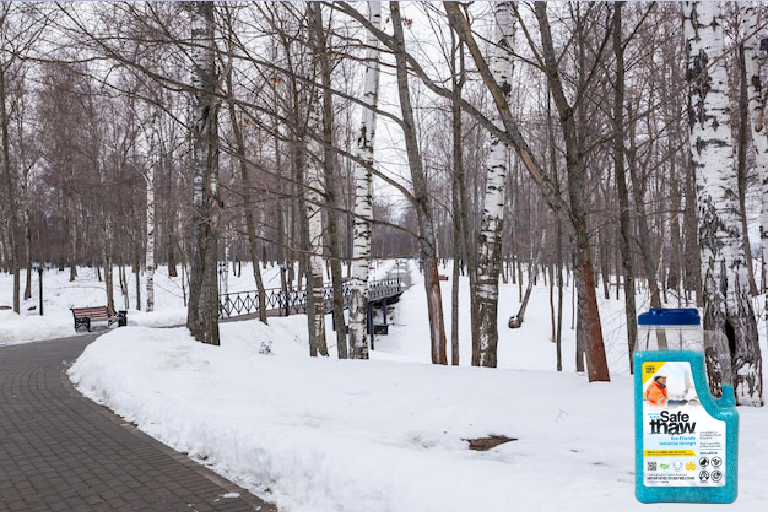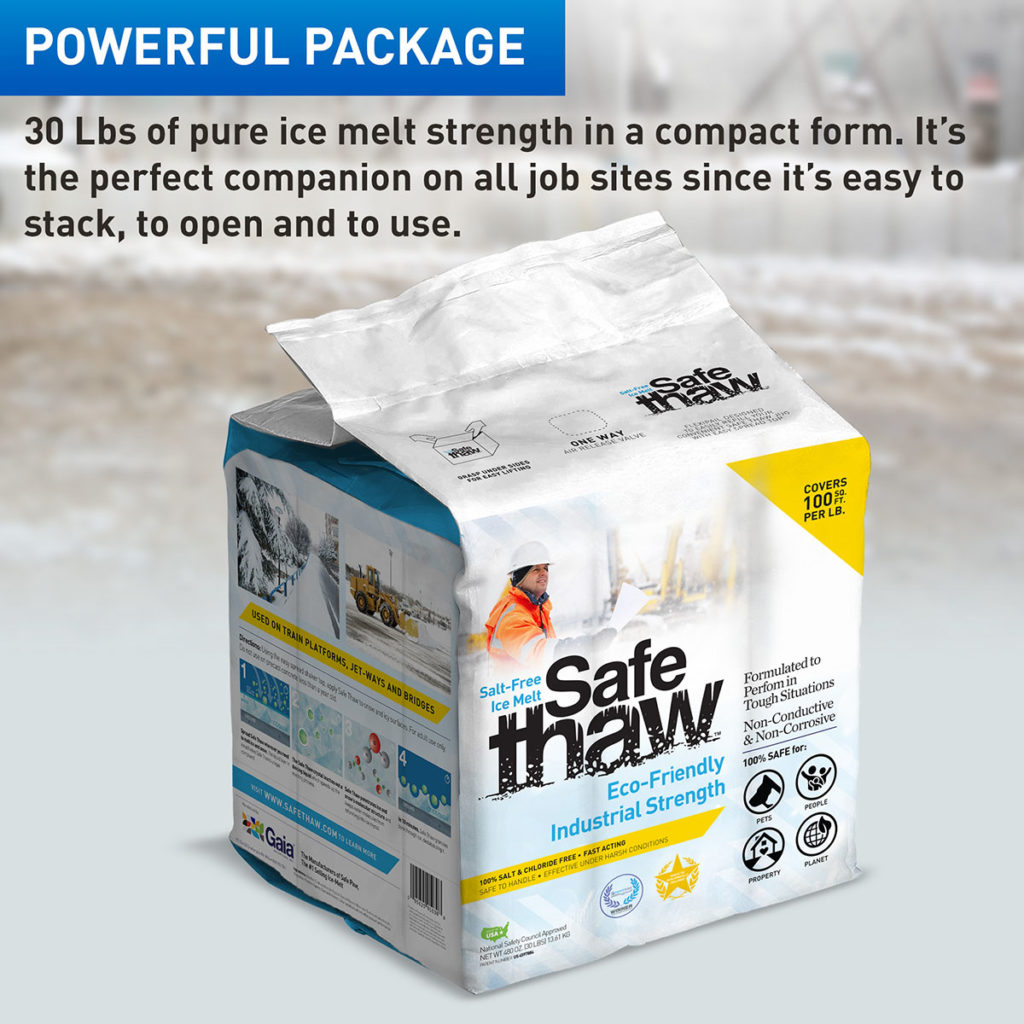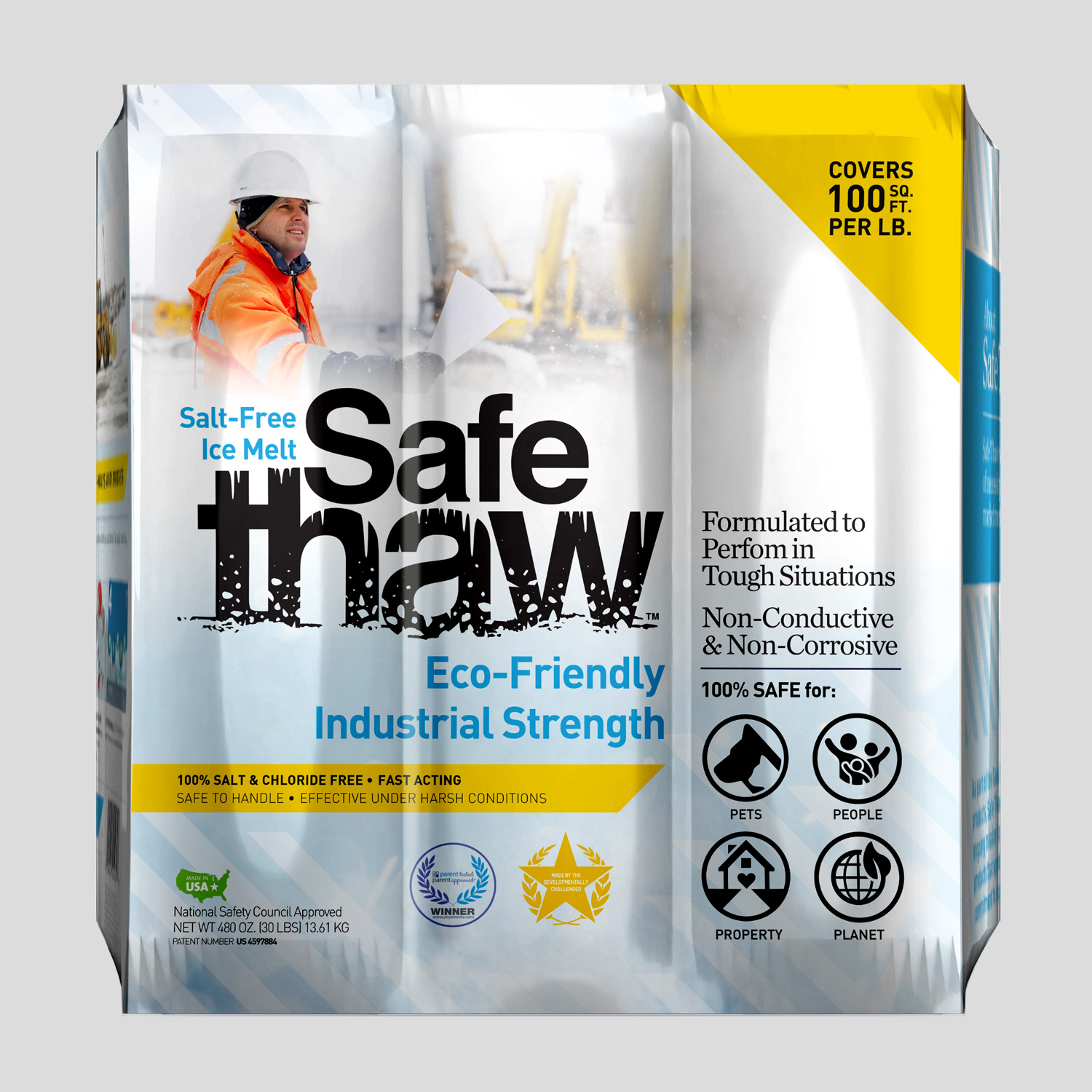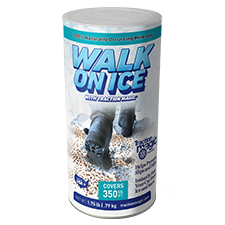Driveway Drainage in Winter: What You Need to Know

A well-laid out driveway is very important in winter. A good driveway will help your car to move freely, and it will also make it easy for you to park without taking up much space. However, a poorly laid out driveway can cause serious problems for your car and even cause a crash. You may also be wondering what’s the best ice melt for concrete. There are many factors involved in laying out a good driveway but one of the most important ones is proper drainage. By making sure that there is proper drainage from your driveway, you can avoid many problems associated with snowy weather.
Effective driveway drainage is crucial to prevent water accumulation, erosion, and potential damage to your property. However, drainage issues can arise due to various factors, especially during winter when snow and ice add an extra layer of complexity. In this article, we will discuss common driveway drainage problems and provide valuable tips to tackle these issues effectively, ensuring a well-maintained and problem-free driveway.

Safe Thaw
Safe Thaw was created as the ice management solution for tough winter environments. Ideal in commercial and industrial properties, shops, government agencies, bridges, and construction.
How to Fix Driveway Drainage Problems?
Driveway drainage problems (driveway drain repair) can range from poor slope design to clogged drains. To address these issues, consider the following steps:
- Assess the Slope: Ensure that your driveway has a proper slope that allows water to naturally flow away from your home. If the slope is inadequate, consider regrading the area.
- Clear Debris: Regularly clean and clear any debris, leaves, or dirt that might obstruct drainage paths and cause water pooling.
- Install Drainage Systems: If your driveway lacks proper drainage, consider installing trench drains, culverts, or French drains to redirect water away from your property.
Tips to Prepare Your Driveway Drainage for Winter:
- Clean Drains: Before winter arrives, make sure all drains and drainage paths (driveway drain repair) are clear of debris to prevent clogs during heavy rainfall or melting snow.
- Inspect Gutters: Ensure that your gutter system is working efficiently to divert water away from your driveway and foundation.
- Remove Snow Buildup: Remove snow and ice from your driveway to prevent water from accumulating and refreezing, which can lead to ice dams and drainage issues.
Effective Ways to Avoid Common Winter Drainage Problems:
- Monitor Drainage Paths: Regularly check your driveway’s drainage paths during winter to prevent snow and ice buildup that can block proper drainage.
- Prevent Ice Dams: Proper insulation and ventilation in your attic can help prevent ice dams, which can contribute to drainage problems.
- Use Safe Thaw: Choose a snow and ice melt product like Safe Thaw that is safe for concrete and won’t harm your driveway’s drainage system.
Which Type of Home Drainage System Is Best During Winter?
During winter, a combination of well-maintained natural slopes, along with properly installed drainage systems like French drains or trench drains, can help effectively manage water runoff and prevent issues like ice dams and pooling.
Drainage Problems Caused by Snow and Ice:
Snow and ice can exacerbate drainage problems by blocking drainage paths, causing water to pool and refreeze. This can result in slippery surfaces, erosion, and potential structural damage. Proper maintenance and proactive measures are key to preventing these issues.
The Freezing-Thawing Process
The freezing-thawing process is a natural phenomenon that occurs when water in the ground freezes and expands, which can cause your driveway to crack. This happens because of how water expands when it turns into ice, putting pressure on the soil underneath. Over time, this pressure weakens your driveway’s structure until it eventually breaks apart or sinks down into potholes (which are also known as “drainage pits”).
Having a proper drainage system not only helps prolong the life of your driveway but also ensures that the surface is safe throughout winter. When you have a new asphalt driveway installed, make sure to incorporate this feature right away.

Safe Thaw
Safe Thaw was created as the ice management solution for tough winter environments. Ideal in commercial and industrial properties, shops, government agencies, bridges, and construction.
What’s The Best Ice Melt For Concrete
You can spend hours a day, every day, trying to remove all the ice and snow from your driveway. But this is an exercise in futility; there will always be some remaining on the surface of your driveway. The best way to deal with ice and snow is prevention: keep it from accumulating in the first place! Then, remove what you can and leave the rest to Safe Thaw! With Safe Thaw, you don’t have to worry about things like why does ice melt damage concrete.
Dangers Of Winter Sunshine
While winter sunshine is a welcome sight after heavy rainfall, sleet, and snow, it can also damage your asphalt. This happens when water enters your driveway’s gaps and cracks then freezes and expands. The freezing-thawing process weakens your driveway’s structure over time, which can lead to potholes forming in time.
The solution? Drainage! By installing a drainage system on top of your existing asphalt surface before winter sets in (and keeping it clear during the season), you’ll be helping to avoid any future structural damage that might result from flooding or ice build-up near the edges of driveways.
100% salt & chloride-free, fast acting Ice Management Solution
Conclusion
We hope now you know what’s the best ice melt for concrete. We hope this article has helped you understand the importance of proper drainage for your driveway in winter. If you’re still unsure about what type of system would work best for your home and property, give us a call today! We’d be happy to help out with any questions or concerns on what type of system will work best for your needs.
Driveway drainage problems can lead to a range of issues, from water accumulation to erosion and structural damage. Taking proactive steps to address these issues, especially during winter, can help you maintain a functional and well-drained driveway. By following effective drainage solutions and using products like Safe Thaw, you can enjoy a safe and resilient driveway throughout the year.
FAQs
Try Also Our Other Winter Safety Products:
Safe Paw
The Original and #1 Selling Pet and Child Safe Ice Melt for over 20 years. Guaranteed environmentally safe –It won’t harm animals or children, and it won’t damage your property. That’s Safe Paw. Safe Paw can change how winter affects our planet.

Walk On Ice
The handy disposable canister can be taken everywhere, with the same 100% naturally occurring minerals that provide instant traction on ice or snow. Use it on sidewalks, steps, or as an instant traction agent for your car.



